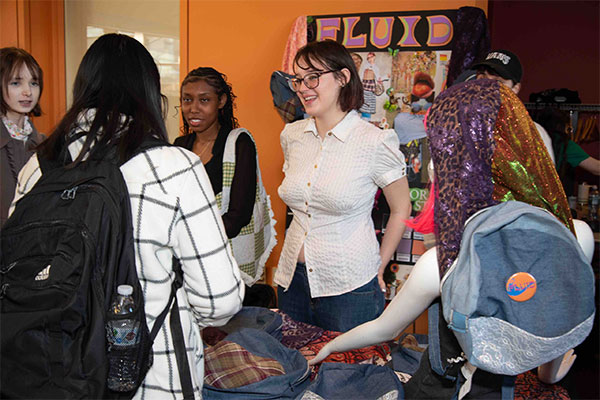
Coronavirus Concerns Disrupt the Global Fashion Industry
Where time is a key driver, the outbreak has caused a host of problems.
The coronavirus, now known as COVID-19, already has caused approximately 2,500 deaths worldwide and can be attributed to major bottlenecks in the global fashion industry, from shuttered factories to canceled events to shipment delays. Jefferson fashion merchandising and management professors Nioka Wyatt and Camille Avent explain some of the impacts on the fashion industry.
What products are affected by the spread of the coronavirus?
COVID-19 has disrupted the supply chain for apparel, footwear, home and many other products produced in China, the epicenter of the outbreak. It has now ballooned to roughly 80,000 cases globally.
How has the coronavirus impacted business, the fashion supply chain and the industry in general?
In several ways. First, many Chinese factories have suspended operations. Second, invaluable fashion trade shows, such as MAGIC in Las Vegas, have experienced a serious decline in traffic and vendors from Asia. Additionally, Kingpins denim tradeshow in Hong Kong and the “Time to Move” summit in Zurich sponsored by Swatch canceled events due to coronavirus fears. More industry shows likely will be postponed too. Third, shipping from China is nearing a standstill, according to a Wall Street Journal report. As a result, products may be delayed for months.
What are the repercussions of these business disruptions?
Trends matter in fashion. Timelines, deadlines and logistics are key to the delivery of products to consumers for the trend to be successful. Delays and canceled industry shows make it challenging for small businesses to purchase products for upcoming seasons and hurt the process of building new relationships in an already volatile market. When products arrive late for holidays like Mother’s Day and shopping seasons, such as back to school, sales can plummet.
Worldwide travel also has sputtered. Fashion retailers in New York rely heavily on Chinese tourists to purchase the latest Nike sneakers, Chanel bags and Louis Vuitton luggage. Milan is “eerily empty”—a scene repeated in the fashion districts of London, Paris and Dubai.
When products arrive late for holidays like Mother’s Day and shopping seasons, such as back to school, sales can plummet.
What are some options for retailers trying to manage worries of sales declines due to the coronavirus?
Retailers can fly products across the world to ensure on-time delivery; however, this results in higher transportation costs, which eventually will fall on the consumer. Adding fuel to the fire, air shipment doesn’t support sustainability and intensifies climate change.
While companies struggle to identify a plan, some retailers are partnering with local manufacturers and paying the higher cost to produce goods.
The fashion industry has worked diligently to develop strategic approaches to diversifying the supply chain, especially due to the wage war in China, trade barriers and increased tariffs. Yet, in today’s market, most materials used for production come from or are made in China.
China is a major buyer and seller of consumer goods, capturing 38% of the global fashion industry.
From a fashion perspective, how does this outbreak compare to the SARS epidemic?
China’s manufacturing and retail sector has exploded since the SARS outbreak in 2003. Back then, China accounted for only 8% of the global fashion market share. Today, the country is a major buyer and seller of consumer goods, capturing 38% of the global fashion industry.
What will be the long-term impact of the virus on the fashion industry?
It’s too soon to say, but we’re holding our breath as the global economy buckles and bends in response.
Nioka Wyatt is director of Jefferson’s fashion merchandising and management program, and Camille Avent is a fashion merchandising and management professor.



